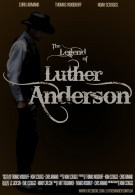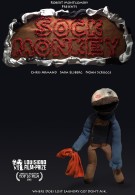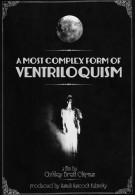

By Kim Voynar Voynar@moviecitynews.com
Louisiana Film Prize Kicks Off with a Big Winner
 Last week I went to Shreveport to judge at the inaugural Louisiana Film Prize. Incepted by Gregory Kallenberg as a way to both support budding filmmakers and bring them to Shreveport to shoot films, the event required aspiring entrants to come to Shreveport to shoot a short film, which they then submitted to the competition; the Top 20 films chosen were invited to compete against each other for a $50,000 grand prize. Kallenberg said he’d anticipated they’d get maybe 30 films to shoot in Shreveport with this contest. They got nearly 80. The shoots for the films entering the contest, according to the press release, used over 650 local cast and crew and spent over $2 million in the Shreveport-Bossier area in payments for cast and crew, food, equipment and lodging.
Last week I went to Shreveport to judge at the inaugural Louisiana Film Prize. Incepted by Gregory Kallenberg as a way to both support budding filmmakers and bring them to Shreveport to shoot films, the event required aspiring entrants to come to Shreveport to shoot a short film, which they then submitted to the competition; the Top 20 films chosen were invited to compete against each other for a $50,000 grand prize. Kallenberg said he’d anticipated they’d get maybe 30 films to shoot in Shreveport with this contest. They got nearly 80. The shoots for the films entering the contest, according to the press release, used over 650 local cast and crew and spent over $2 million in the Shreveport-Bossier area in payments for cast and crew, food, equipment and lodging.
I liked a number of things about this fest/contest. First and foremost, one of the issues short filmmakers have is trying to figure out what purpose their film serves. Is there a way to make money back on a short? Are they used only as calling cards to show potential future investors that you have what it takes to pull off a feature? By giving the filmmakers a chance to compete for real prize money, this contest motivated them not only to figure out how to shoot in what was for some of them unfamiliar turf, but to have a shot at winning enough money to actually shoot a low-budget feature with their winnings. Additionally, three films would receive $3,000 “Founders Grants,” money they can get reimbursed to them off their production costs next year if they return to Shreveport to enter the contest again.
I keep shifting back and forth between calling this a contest and a fest, with good reason. Although it was technically a contest, it was also a festival, screening the 20 short films in the contest in two 10-film slates multiple times over the course of the weekend. Kallenberg hoped they would sell 500 tickets to the good people of Shreveport, but the locals really came out to support this budding fest, with over 1600 tickets sold by Friday when I landed (I believe the final count was closer to 2,000). They had an interesting system of determining a winner, also: 50% of the vote came from the ballots of the judges, and 50% from the votes of audience members. Everyone had to get their badge punched after viewing each slate, and you had to have seen both slates in order to cast a ballot. The fest encouraged the filmmakers to come to the fest and promote their films in interesting ways, which many of them did by throwing parties, putting on a haunted house and street performances, creating window displays, or walking around in costumes that evoked their film. It also encouraged the filmmakers to get out and talk to the people attending the fest, which is terrific because it makes filmmaking and the filmmakers feel accessible to the audience and gives folks a sense of investment in the films for which they’re voting.
Having that much money on the line made, overall, for a much stronger competition that what I generally see of shorts even at the bigger fests. Having seen and judged an awful lot of shorts at fests, I estimated that if 10% of the films I saw didn’t suck, it would be a good run. Instead, I ended up with five films out of 20 that I thought were very strong contenders, and many more that I liked quite a bit, which isn’t a bad percentage out of 20 films in a competition like this.
The grand prize-winning film, The Legend of Luther Anderson, was a comedic Westernish short about a young dude who seeks to exact revenge on the bad guy who shot and killed his father, and finds the courage to go after him after he finds the pair of magic cowboy boots his father died to protect. Luther Anderson was a fun little film, hitting many comedic elements right. Luther Anderson was written and directed by Chris Armand, Noah Scruggs and Thomas Woodruff, who also starred in their own film – a pretty ambitious sort of undertaking. If the filmmakers wanted to expand their idea into a feature, they’d have some work to do in better fleshing out character development and theme, but they made a very solid and entertaining entry with their film, which was very well received by the fest attendees and many of the judges, and they were over-the-moon ecstatic to win. Luther Anderson also won one of the Founders Grants, so hopefully their team will return next year to make another entry. Also winning the Founders Grant prizes were Sock Monkey, a puppetry-based film about what happens to all the socks that go missing from the drier, and This is a Microphone, a well-crafted and timely drama about an ex-loan officer who confronts the bank that employed him about their practices after he’s fired and has his home foreclosed on.
 Speaking of Sock Monkey, this was one of my favorite films from the weekend. Directed by Robert Montgomery, and told entirely without words (although the sock monkeys in the imaginary world the filmmakers created “spoke” in their own language of grunts and hoots), this short had some spectacular production value in the way in which the filmmakers created the sock monkey fantasy world, using inventive puppetry to tell a very visual and visceral story. Loved this film a lot, and I hope to see it make a mark on the fest circuit.
Speaking of Sock Monkey, this was one of my favorite films from the weekend. Directed by Robert Montgomery, and told entirely without words (although the sock monkeys in the imaginary world the filmmakers created “spoke” in their own language of grunts and hoots), this short had some spectacular production value in the way in which the filmmakers created the sock monkey fantasy world, using inventive puppetry to tell a very visual and visceral story. Loved this film a lot, and I hope to see it make a mark on the fest circuit.
 One of my other fave films from the fest was an equally inventive black-and-white film called A Most Complex Form of Ventriloquism, written and directed by a young female filmmaker, Ashley Brett Chipman. Evoking the style and sensibility of both Guy Maddin and Georges Méliès, this film was ambitious in design and scope and is one of the most creative shorts I’ve seen. I’ll be looking forward to seeing what Ms. Chipman does with this film on the fest circuit, and with her future endeavors. There are few things I enjoy more than discovering a new voice through a film at a fest, and A Most Complex Form of Ventriloquism definitely fit that bill; it was worth the weekend trip just for the pleasure of seeing this film.
One of my other fave films from the fest was an equally inventive black-and-white film called A Most Complex Form of Ventriloquism, written and directed by a young female filmmaker, Ashley Brett Chipman. Evoking the style and sensibility of both Guy Maddin and Georges Méliès, this film was ambitious in design and scope and is one of the most creative shorts I’ve seen. I’ll be looking forward to seeing what Ms. Chipman does with this film on the fest circuit, and with her future endeavors. There are few things I enjoy more than discovering a new voice through a film at a fest, and A Most Complex Form of Ventriloquism definitely fit that bill; it was worth the weekend trip just for the pleasure of seeing this film.
I also want to mention a couple of solid family-friendly shorts in the competition (for any of you fest programmers out there struggling to find family-friendly fare to round out your own fests): Biggo, written and directed by Josh Smith, is about a boy with unusually large hands who’s bullied or ignored by his classmates; and The Adventures of Captain Oliver, written and directed by Bryan and Claire McManus, follows the unlikely adventures of a stuffed pentapus who gets separated from his human sidekick and must find his way back home. Both were delightful.
Saturday of the fest, there was a series of three panels (called the Judges’ Roundtable) at which those of us there judging the fest were invited to discuss storytelling and screenwriting, film production, and distribution and criticism. There were some very smart people on these panels with me, and we spoke before a packed house of attending filmmakers and one very smart 12-year-old boy who aspires to become one. We had some lively discussion, and a lot of great questions from a pack of very enthusiastic and passionate filmmakers.
Overall, I thought Kallenberg and his staff (Festival Director Chris Lyon, Festival Coordinator Kathy Melancon, Festival Producer Sabrina Adsit, and Festival “Badass” Ian Summers — lovely and amazing people, all of them) did a terrific job of organizing the first year of their event. I came to Shreveport fully anticipating there would be the usual first-time hurdles and missteps, but I found the team running this fest to be incredibly organized and thoughtful in their planning. The screenings seemed to run smoothly, and hospitality was fabulous; the VIP lounge had a splendid buffet of Louisiana cuisine and open bar every night, there was always a staffer on-hand offering to give rides or just have a friendly chat, and the Shreveport residents who came out in abundance for the fest were warm and smiling and eager to talk to filmmakers and judges alike. The audiences with whom I saw both slates were also very open to the films they were seeing, and responded positively to even the more challenging films.
If you’ve ever made a short film and submitted it to fests, you know that shorts filmmakers generally don’t get a whole lot in the way of attention once they get into a fest, unless it’s a fest that focuses only on shorts; it’s just kind of the way it goes in the world of short filmmaking. The Louisiana Film Prize, though, went way above and beyond what I generally see for shorts filmmakers. The fest put up the filmmakers at the Shreveport Hilton (one of the fest’s sponsors, where the judges also stayed) and gave each team $500 to use for either post-production costs or toward the marketing of their film during the fest. The filmmakers also got VIP badges, which gave them access to the VIP lounge.
Now personally, I would suggest that next year it might be better to consider dividing the prize money up into two awards, a popular audience award and a judges award; in part, this would ensure that filmmakers journeying from outside Shreveport, who don’t have the benefit of inviting tons of friends and family out to see their film and vote for it, wouldn’t be penalized for not being locals (which, in turn, encourages filmmakers from outside Shreveport to enter the competition because they won’t feel it’s weighted in favor of locals). This is one change I do hope the fest makes for next year. I’d also love to see this fest bring on an education and outreach coordinator and engage both Millenium Studios and Moonbot Studios (which produced the Oscar-winning animated short, The Fantastic Flying Books of Mr. Morris Lessmore) in Shreveport to maybe run a couple of filmmaking camps for young people in Shreveport and add a student competition to their fest. If they were able to focus on outreach to ensure that kids from less wealthy families could participate as well, they could really do something amazing in nurturing the next generation of filmmakers out of Shreveport.
Look for the Louisiana Film Prize to become increasingly popular once word gets out more about it; filmmakers take note: Kallenberg plans to bring the fest and contest back for its second year bigger and better, with even more prize money at stake for the winners. This is one film contest worth taking the time to enter, even if you don’t live near Shreveport. With that kind of prize money up for grabs, it just might be worth your interest.
Note: The title of one of the films listed as winning a Founders Prize had a typo and has been corrected. The correct title is This is a Microphone. Apologies to the filmmakers. – KV















As a non-filmmaker participant but part of the LFP team, I must say your remarks are insightful. Thanks, Kim!
“This is a Microphone” not “The is Not a Microphone”
William,
Corrected, with my apologies for screwing up the title.
-KV